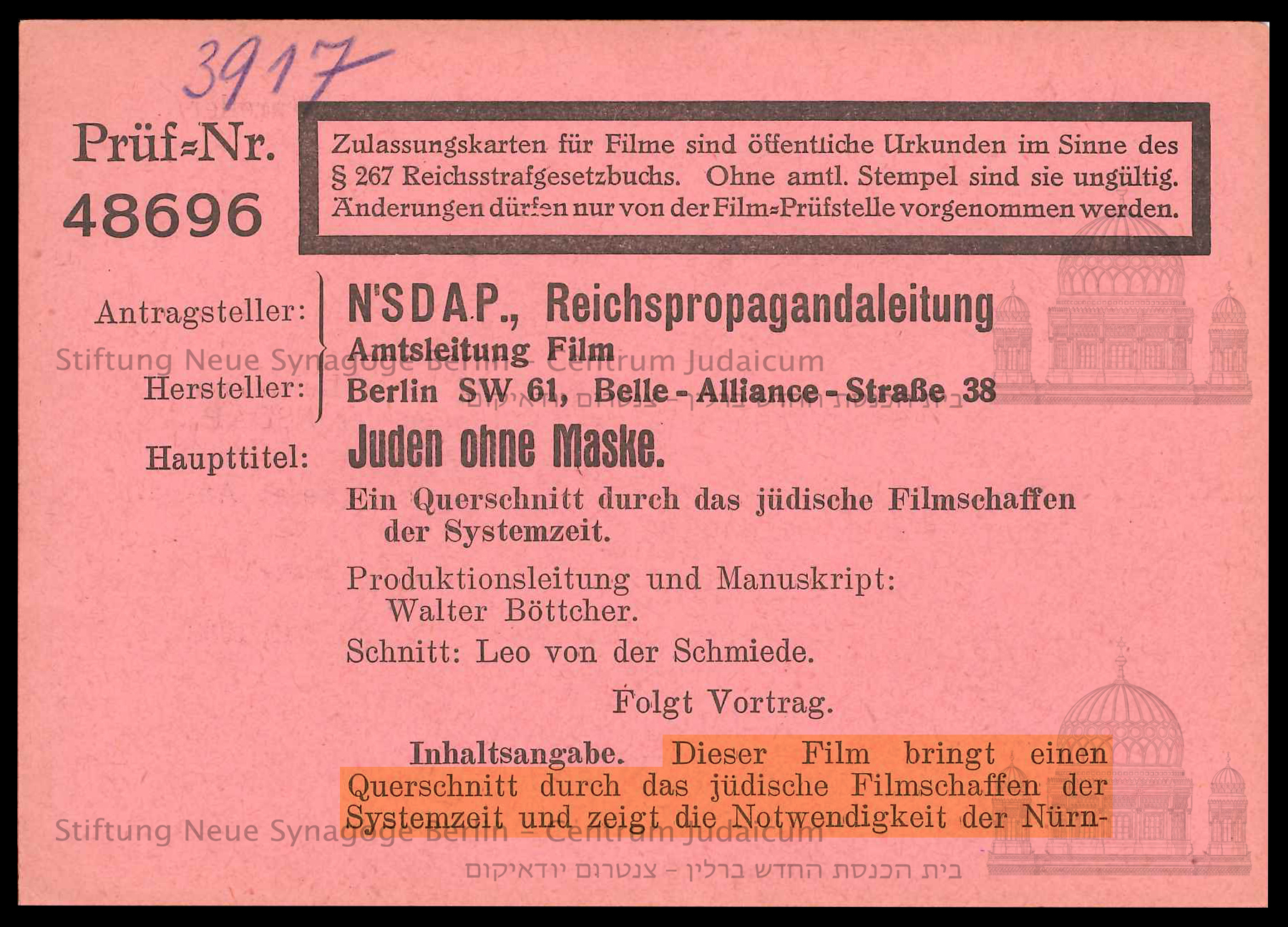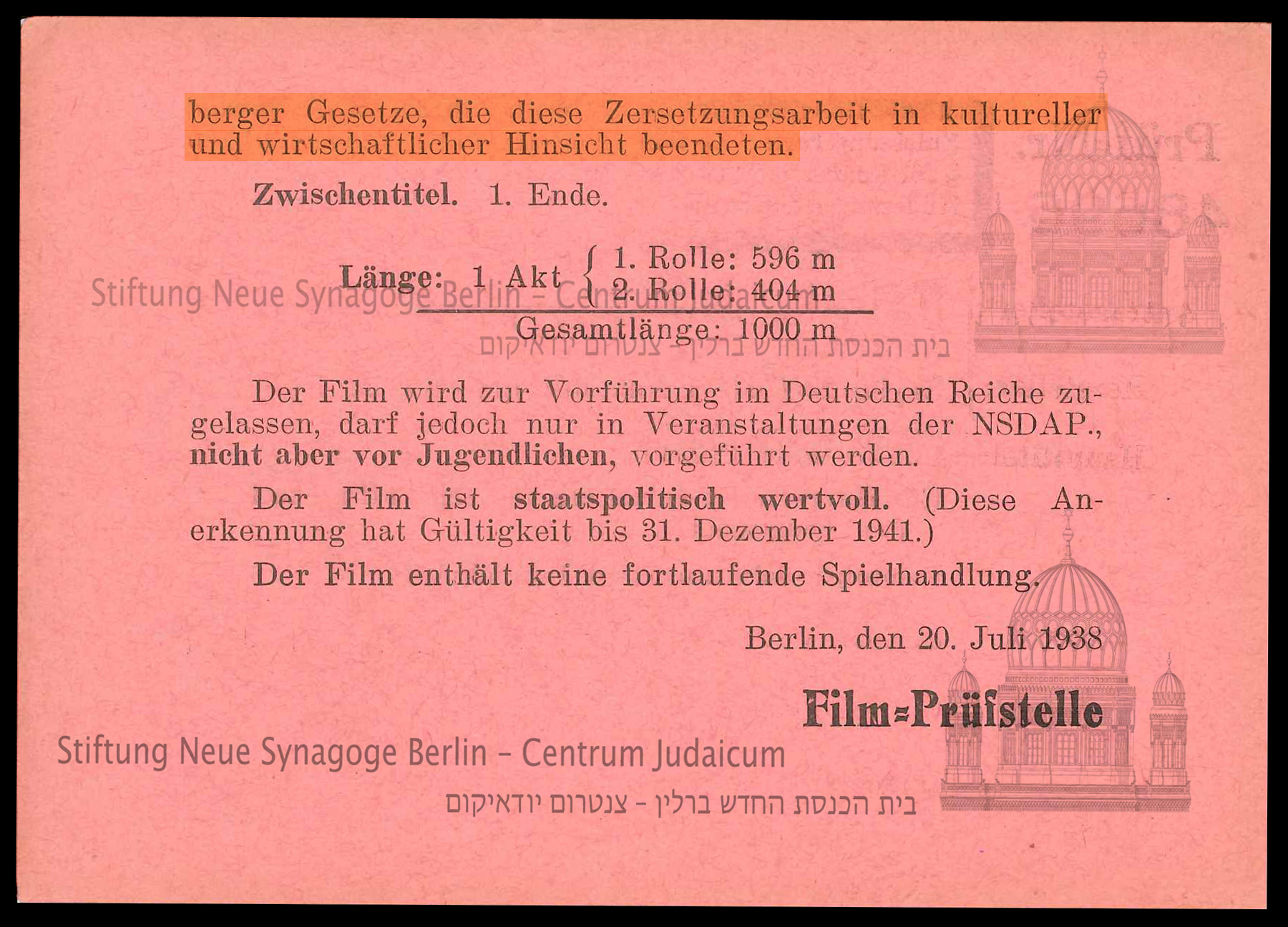“Jews Unmasked”
Nazi censors deem an antisemitic film politically useful



External links are disabled on the kiosk. Please visit archive links from desktop or mobile devices.






















BACK TO TIMELINE
Sign up for weekly updates:
Success
Thank you for signing up.
Error
You're already a list member.
Error
An error occurred, please try again later.










































Sign up for weekly updates:
Success
Thank you for signing up.
Error
You're already a list member.
Error
An error occurred, please try again later.
The Leo Baeck Institute – New York | Berlin presents the year 1938 through the eyes of Jews, whose personal documents detail their experiences and the hardships they suffered as well as the growing tensions in Europe and diminishing hope for Jews in Germany and Austria.

Curated by Leo Baeck Institute – New York | Berlin
© 2018 Leo Baeck Institute
Website and exhibition design by C&G Partners



“Summary. The movie offers a cross-section of Jewish film production during the system period [derogatory term for the Weimar Republic] and proves the necessity of the Nuremberg Laws, which brought an end to this subversive activity in the fields of culture and the economy.”
Berlin
Immediately after their rise to power in January 1933, the Nazis began to extend their control over every aspect of cultural life in Germany. As a popular medium capable of reaching large numbers of people—and one perceived as being dominated by Jews—film was of central importance to the new regime. Before the production of a new movie could begin, the script had to pass pre-censorship. The final product was scrutinized by the censorship authority for film (Film-Prüfstelle) of the Reich Propaganda Ministry. Under the Nazi regime, the state’s relationship with the film industry changed. While prior to 1933, authorities had primarily sought to censor or suppress material deemed harmful, the Nazi regime actively instrumentalized the film industry to promote National Socialist ideology. The anti-Semitic film “Juden ohne Maske” (“Jews unmasked”), whose authorization card from the censors is shown here, is such a case. It received the rating “valuable to national policy”, but it was also restricted to screenings for adult audiences in the context of NSDAP events.
SOURCE
Institution:
New Synagogue Berlin – Centrum Judaicum 
Original:
Authorization card from the Berlin Film Censorship Office for the Nazi propaganda film, “Juden ohne Maske” [“Jews Unmasked”] ; CJA, 7.78



Curated by Leo Baeck Institute – New York | Berlin © 2018 Leo Baeck Institute
Website and exhibition design by C&G Partners